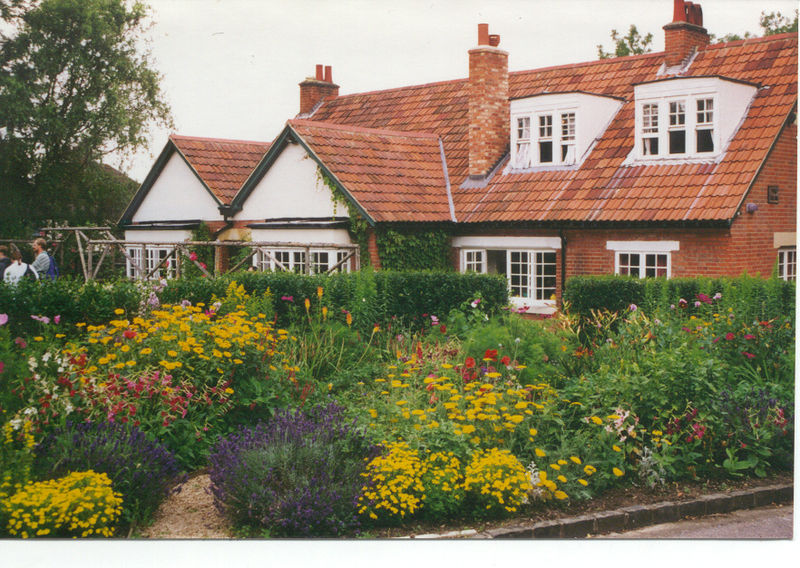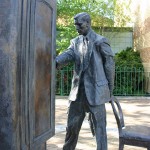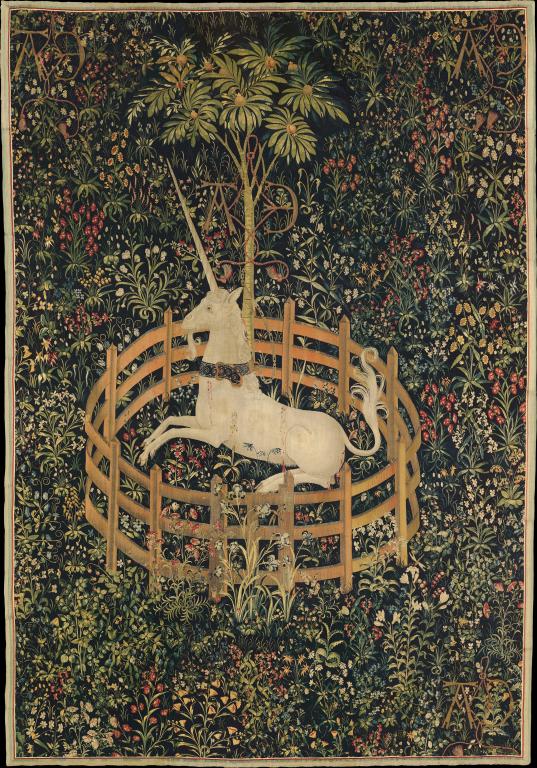David Russell Mosley

This is a photo of “The Kilns” – C.S. Lewis’ home in Oxford. This picture, and all pictures in this series were taken in 1997.
Date 24 June 2005, 18:29
Source Lewis’ House
Author jschroe from Kailua-Kona, Hawaii, USA
(CC BY 2.0)
Ordinary Time
6 October 2016
The Edge of Elfland
Hudson, New Hampshire
Dear Readers,
Yesterday I wrote to you about some of my confusion over evangelical love for Lewis. In that letter I focused on social aspects of Lewis’ life that many evangelicals would find distasteful at best and downright sinful at worst. While the ultimate point of that letter was to focus on the possible ecumenism, there was also the tacit point that certain things Lewis did would exclude him from employment at many institutions that revere him today. That said, I want to clear up a few things from my previous letter and make just a few short remarks on theological issues that will arrive or should arrive or perhaps even have arrived when one studies Lewis carefully.
Mistakes
First, and foremost, I need to apologize for a real mistake I made. In the title of my post I called Lewis a Brit. This is not really true. Lewis was born in Belfast which makes him Irish, kind of. In truth, Belfast was at the time of Lewis’ birth and still is part of the United Kingdom. Now this would not make Lewis a Brit since technically Great Britain is England, Scotland, and Wales and the United Kingdom is Great Britain and Northern Ireland. I knew this and know it still and yet used the word Brit in the title. Now, I think to a large extent Lewis did become a Brit. He spoke with a posh Oxbridge accent and never resided in Ireland again after moving to Oxford. Still, under a most technical definition, he was not a Brit.
Defining Evangelicalism
When I wrote about evangelicals in my previous letter, my emphasis was certainly more on behaviors, acceptable and unacceptable, than it was on beliefs. The reason for this, by and large, was that I thought of the title for that letter and the Tolkien quote rather simultaneously. Now the truth of the matter is that many evangelicals today are beginning to turn around on issues of alcohol and tobacco (two of Lewis’ key “sins”). I do think it would be interesting to see, however, what relationship there is between evangelicals who drink and/or smoke and evangelicals who lean away from evangelicalism to the more catholic/high church. All that said, none of this changes the fact that Lewis has been a major player in the evangelical world even while he was still alive and yet acted in a way that was fine for British Christian life (at least in Lewis’ circles) but would be condemned in many churches in the United States.
All that said, if we take a definition of evangelicalism that does not focus on behavior but on beliefs, we find Lewis an odd match still. I’ve covered several of these issues in a previous letter and so don’t want to rehash them now. I do want to cover a few topics, however. First of all, evangelicalism any more has become so broad and amorphous that it is nearly impossible to define. It is trans-denominational and also includes more “progressive” and more “conservative” elements.
Theologically and traditionally, at least according to Pierard and Elwell in the Evangelical Dictionary of Theology (see pages 406-407), evangelicals hold to:
- The sovereignty of God
- God’s holiness that precludes his ability to look on sin
- God’s love and compassion for sinners
- Scripture as divinely inspired
- Scripture as infallible
- Scripture as inerrant
- Humans are totally deprave from birth
- Penal Substitutionary Atonement
- Salvation is by faith through grace
- Proclaiming the Gospel
- The return of Christ
This is not an exhaustive list of what evangelicals believe, but it is a central one. Although I would argue that not all Evangelicals are Reformed and thus not all Evangelicals hold to total depravity. Still, this is how Pierard and Elwell define it. Looking at this list there are many things Lewis would find uncontroversial. He too believed that God is sovereign (although he would not have meant it in a Reformed way) and believed that God is holy (his ability to “look” at sin could be contested within Lewis’ writing). Lewis did not believe the Scriptures were inerrant, not in the ways that is often meant today; he certainly would have rejected total depravity and was not a fan of Penal Substitutionary Atonement. With the final three, with some caveats (especially for the means of salvation), Lewis would likely have agreed. Which all of this is to say that insofar as Lewis was an orthodox Christian and insofar as any item on the above list is orthodox, the two would have lined up. None of this, of course, changes where Lewis disagreed or other beliefs Lewis held that are, according to one evangelical author, shocking.
Fiction vs. Apologetics?
This brings me to my final point, one that was suggested by several readers of yesterday’s letter. Some suggested that perhaps the reason evangelicals in particular latch onto Lewis is through his apologetic works whereas the more catholically minded tend toward his fiction. I find this intriguing, but it would require a certain amount of sociological and statistical work that I have not the time, inclination, nor ability to undertake. I do think there is something to this, potentially. But at the same time, I think Lewis understood something that many have forgotten. He understood that apologetics and the faith itself must be imaginative. That we must show not only the Christianity is reasonable or argue that it is true, but that it is also good and beautiful. That he understood this is evident from the various stories and even short essays he left us, as well as the often narratival form his apologetic works took. Lewis understood that evangelism could not be all debate and argument, but that it must also be through stories and song, food and drink, and yes, even tobacco. As I said in a letter from a few years ago, we cannot discreetly divide up the catholic and evangelical Lewis. We must, if we truly want to understand his intellectual and imaginative project, take the man as a whole.
Sincerely,
David












